“Mama, can you get braids like us?”
Four simple words that carried a weight I hadn’t fully appreciated until that moment. My daughters’ eyes sparkled with hope as they waited for my answer.
For a couple years now we’ve made the familiar journey to Cathy’s African Braiding in Minnesota.
I’ve sat for countless hours watching my African American daughters transform under the skilled hands of Cathy’s artisans.
In all those visits, I had never once seen anyone who looked like me—a white mother—in those chairs.
So my first inclination was, “There’s no way. Sorry, girls.”
Until last week when I went with Samarah to get her braids done.
“I’ll ask,” I promised, just to see if there’s any way they could do braids in my hair, too.
Without hesitation, Cathy said, “Yes.”
She directed me toward hair color #618, suitable “for someone like me,” and just like that, plans were made.
I would return the following week (today) for Maya’s appointment, and this time, a chair would be waiting for me, too.
Braids Like Us
One of the main reasons I stopped posting photos of my kids on social media was due to the hair.
The comments, the questions, the unsolicited opinions—all of it became too much. And honestly? Even now that we are sometimes catching the hair-care groove, I still keep them offline for the most part.
But this experience extended far beyond what meets the eye.
As I sat in the chair, feeling the gentle pull and twist of each braid taking shape, I understood something new about connection.
“What do you see when you look at this picture?” I asked them later, showing them a photo of the three of us, heads together, braids intertwined.
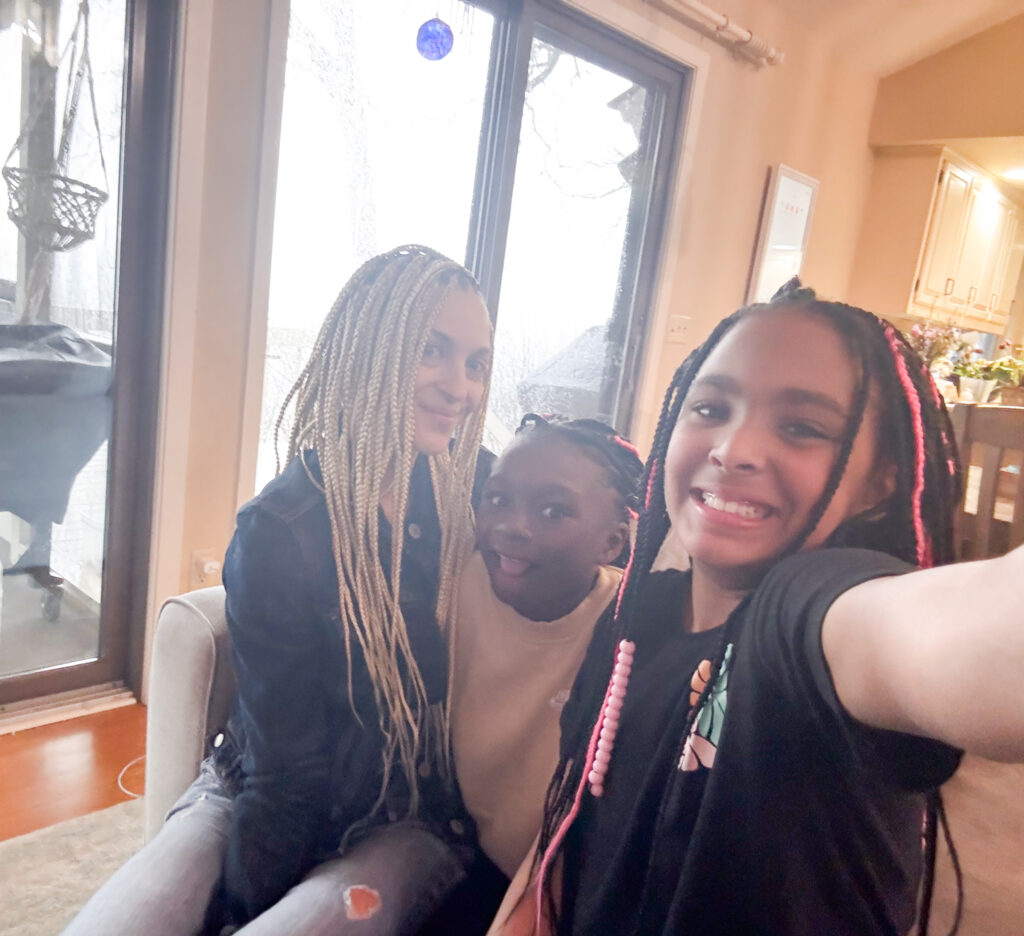
“Happy. Love. Girls,” Samarah said simply.
“Happy,” echoed Amiya, her finger tracing the outline of our faces on the screen.
And that’s what I finally understood. I don’t need to look like them, possess their beautiful Black features or tight curls to connect with my daughters. This wasn’t about appropriation or pretending—it was about listening when they spoke, seeing what mattered to them, and trusting a perspective different from my own.
It was even about being able to truly empathize when they complain that parts of it hurt, or that it “itches,” or that it’s just so. much. hair.
They simply wanted mama to have “braids like us.”
And in my awkward but earnest attempt to honor that wish, I discovered a new layer of understanding—a bridge built not of genetics or appearance, but of shared experience and love.
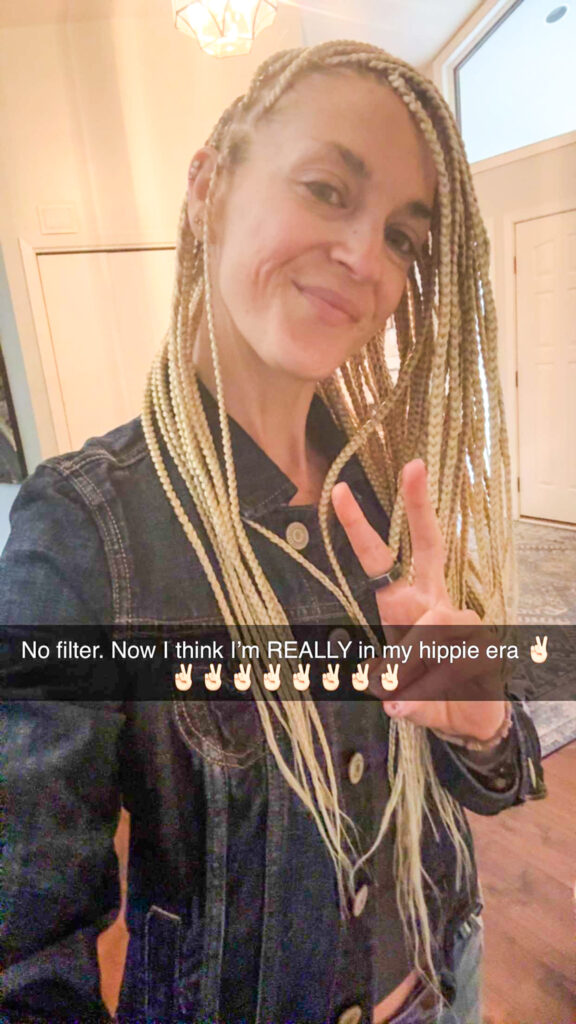
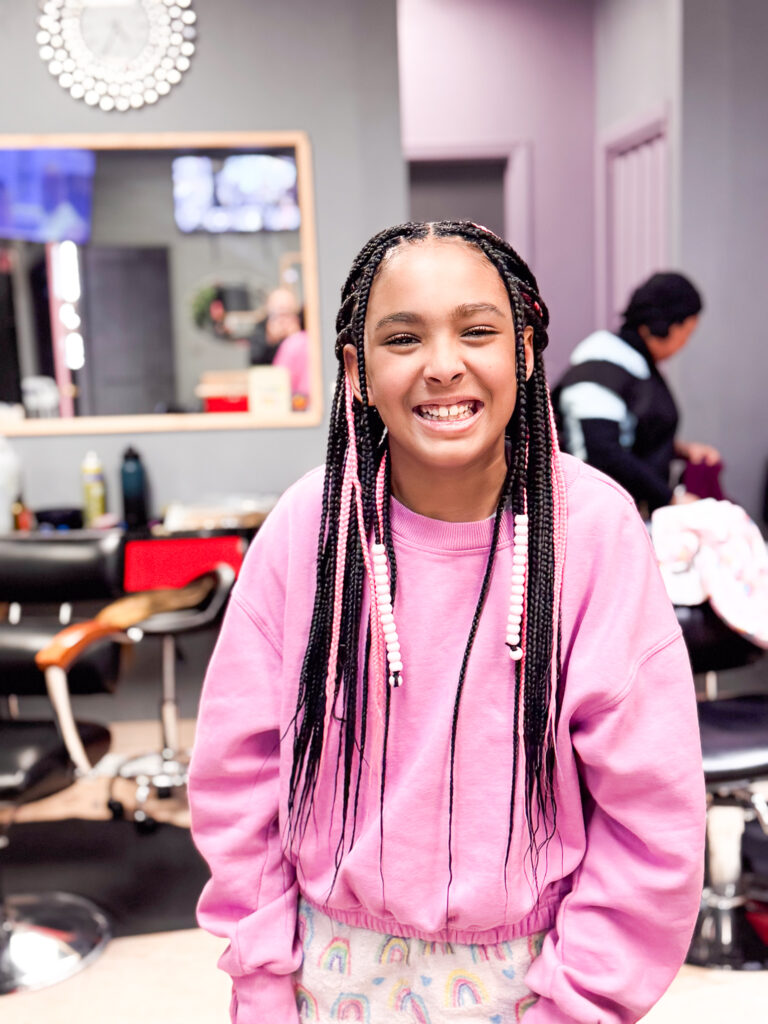
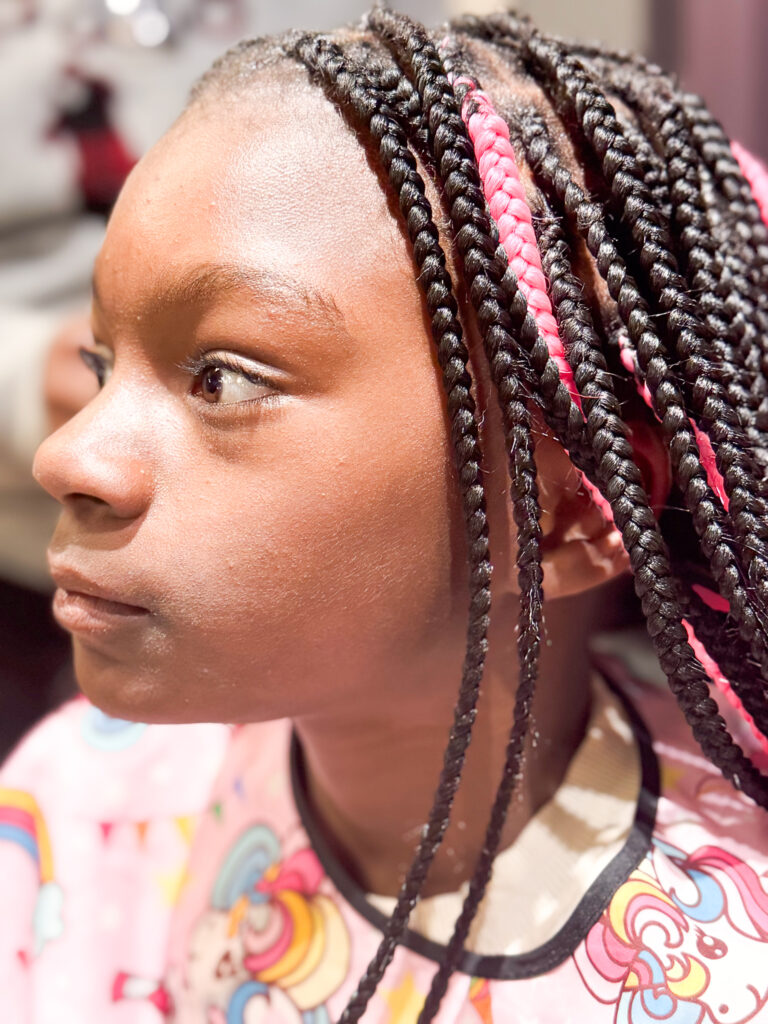
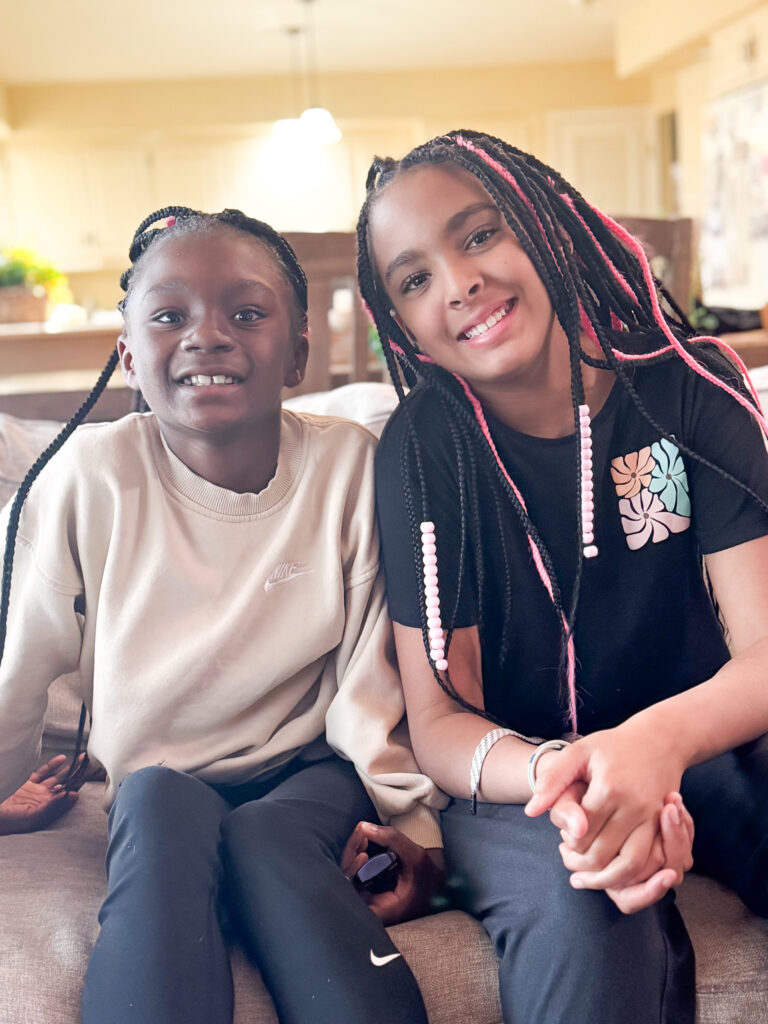
p.s. Upon returning home, Samarah wanted to make a video. So we did. Amiya isn’t seen as much in these images or the video from today because she got carsick on the way home, and was not her usual unicorn self.
p.s.s To that extent, I also got Amiya some new unicorn sunglasses to match her vibe today.
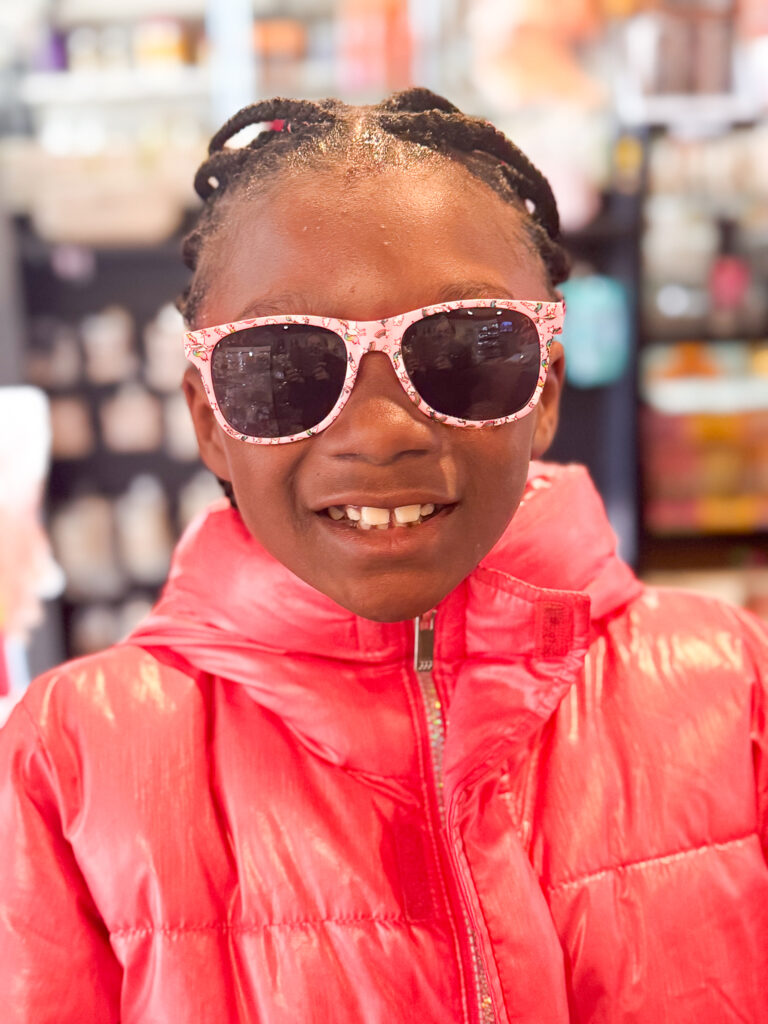
Xox,
SKH
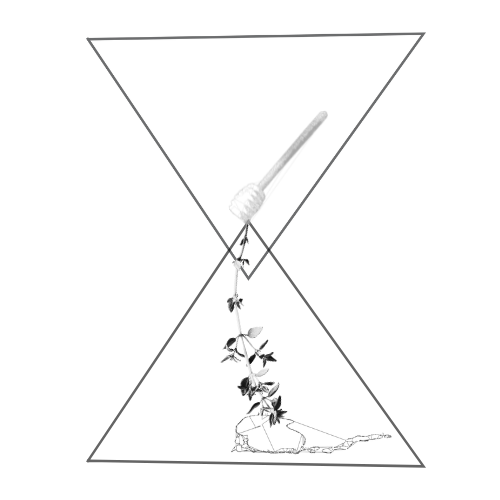
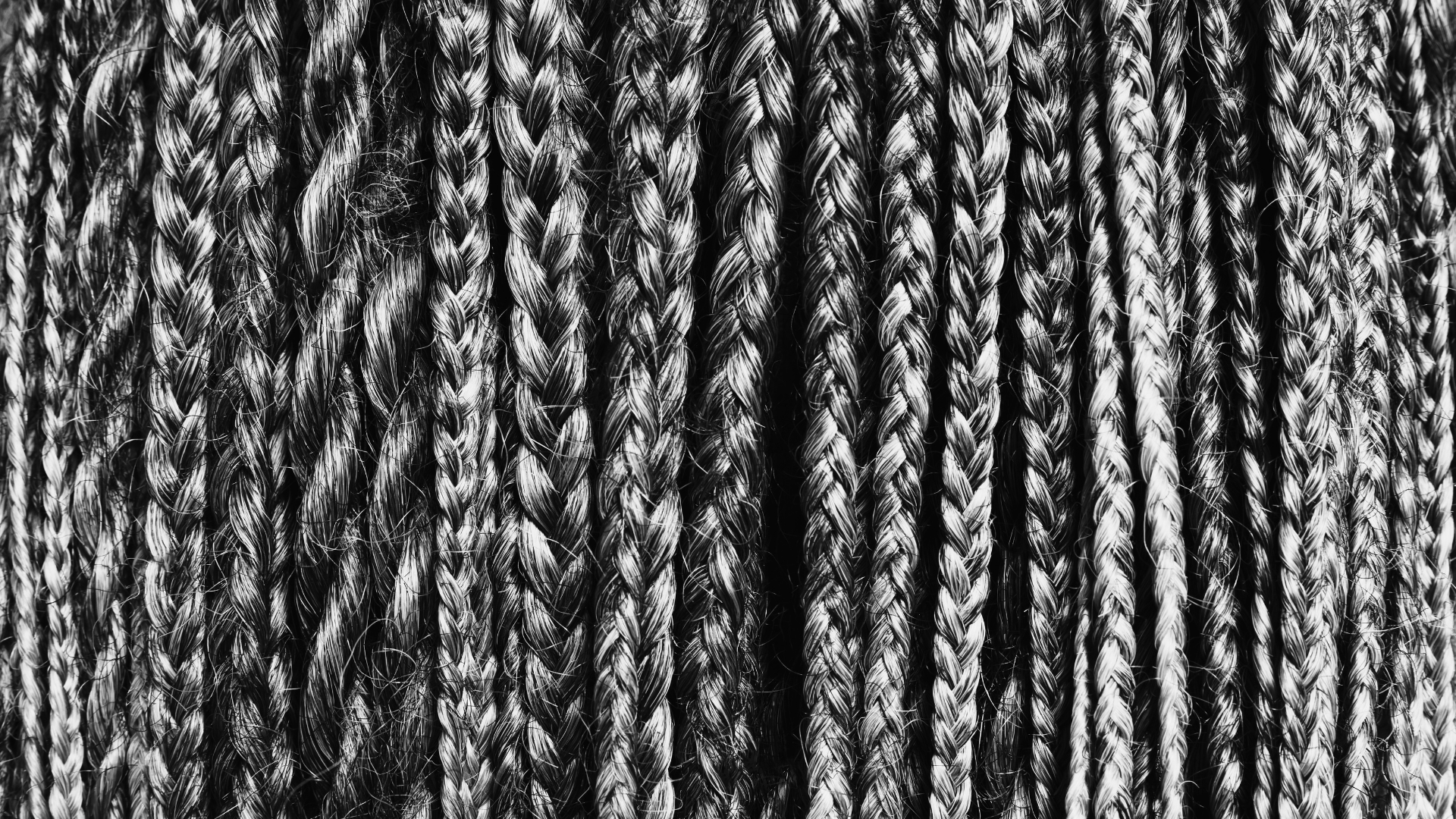
No responses yet